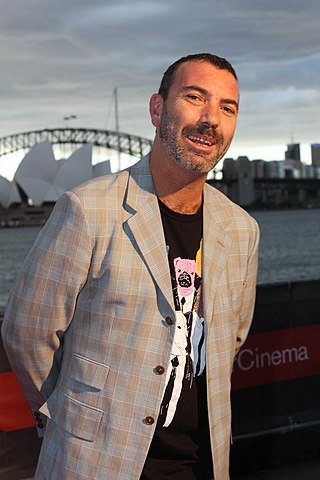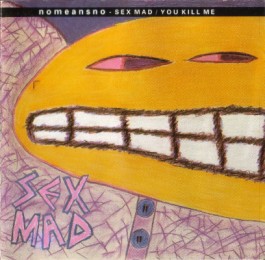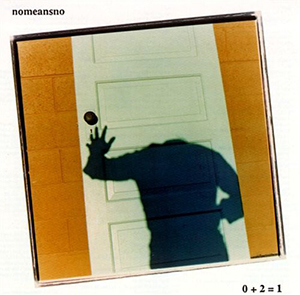Related Research Articles

Eric Reed Boucher, known professionally as Jello Biafra, is an American singer, spoken word artist and political activist. He is the former lead singer and songwriter for the San Francisco punk rock band Dead Kennedys.

Melvins are an American rock band formed in 1983 in Montesano, Washington. Their early work was key to the development of both grunge and sludge metal. Primarily a trio, they have also performed as a quartet, with either two drummers or two bassists. Since 1984, vocalist and guitarist Buzz Osborne and drummer Dale Crover have been constant members.

Paul Francis McDermott, who performs as Paul Mac, is an Australian electropop musician, singer-songwriter, producer and music re-mixer. He was classically trained at Sydney Conservatorium of Music. Mac has formed various bands including Smash Mac Mac (1986–88), The Lab (1989–1998), Itch-E and Scratch-E (1991–present), Boo Boo Mace & Nutcase (1996–98), and The Dissociatives (2003–2005). Mac has released two solo albums, 3000 Feet High and Panic Room – both appeared in the top 40 on the ARIA Albums Chart.
Itch-E and Scratch-E are an Australian electronic music group formed in 1991 by Paul Mac and Andy Rantzen, both playing keyboards and samples. The duo recorded as Boo Boo & Mace! during the late 1990s. At times they have included a third member, Sheriff Lindo, recording under the name Boo-Boo, Mace 'n' Nutcase. In 2001 they disbanded as Mac pursued his solo career. In 2010 the duo reunited as Itch-E and Scratch-E to release new material.

Volition Records was a Sydney, Australia-based record label specialising in electronic music styles such as house, techno, synthpop, and trance. It was founded by Andrew Penhallow and was active from 1984 to around 1997.

Hüsker Dü was an American punk rock band formed in Saint Paul, Minnesota in 1979. The band's continuous members were guitarist/vocalist Bob Mould, bassist Greg Norton, and drummer/vocalist Grant Hart. They first gained notability as a hardcore punk band, and later crossed over into alternative rock. Mould and Hart were the band's principal songwriters, with Hart's higher-pitched vocals and Mould's baritone taking the lead in alternating songs.

Nomeansno was a Canadian punk rock band formed in Victoria, British Columbia, and later relocated to Vancouver. They released 11 albums, including a collaborative album with Jello Biafra, and numerous EPs and singles. Critic Martin Popoff described their music as "the mightiest merger between the hateful aggression of punk and the discipline of heavy metal." Nomeansno's distinct hardcore punk sound, complex instrumentation, and dark, "savagely intelligent" lyrics inspired subsequent musicians. They were a formative influence on punk jazz, post-hardcore, math rock, and emo.
Post-hardcore is a punk rock music genre that maintains the aggression and intensity of hardcore punk but emphasizes a greater degree of creative expression. Like the term "post-punk", the term "post-hardcore" has been applied to a broad constellation of groups. Initially taking inspiration from post-punk and noise rock, post-hardcore began in the 1980s with bands like Hüsker Dü and Minutemen. The genre expanded in the 1980s and 1990s with releases by bands from cities that had established hardcore scenes, such as Fugazi from Washington, D.C. as well as groups such as Big Black, Jawbox, Quicksand, and Shellac that stuck closer to post-hardcore's noise rock roots. Dischord Records became a major nexus of post-hardcore during this period.

"Come Out and Play" is a 1994 song by the American punk rock band the Offspring. It is the seventh track on their third album, Smash (1994), and was released as its first single. Written by frontman Dexter Holland, the song was the second single to be released by the band, after "I'll Be Waiting" (1986). It is considered the Offspring's breakthrough song, as it received widespread radio play, with first attention brought by Jed the Fish of KROQ-FM, and reached number one on the Billboard Modern Rock Tracks chart, bringing both the band and the punk rock genre to widespread attention.

Michael Sheridan is an Australian guitarist. Having played and recorded with an array of artists his versatility in original music spans the styles of rock, jazz/punk, industrial, metal, and sonic art including glitch & noise. He has released solo works such as Scaleshack,Digital Jamming and collaborations with Nicholas Littlemore and associates. He has been a member of several bands since 1975 including No (1987–1989) with Ollie Olsen and Marie Hoy, which were described as "One of Australias most compelling stage acts incorporating speed metal, hip hop and electro funk". In 1989 he followed Olsen to join Max Q with Michael Hutchence of INXS on vocals.

Sex Mad is the second full-length album by Canadian punk rock band NoMeansNo. Released in 1986, it is the first Nomeansno LP to feature long-time guitarist Andy Kerr in addition to founding members Rob Wright and John Wright and the first Nomeansno album issued through Alternative Tentacles.

Cosmic Psychos is an Australian punk rock band which formed in 1982 as Spring Plains. The band's first stabilized lineup included Ross Knight on bass guitar and vocals, Peter Jones on guitar, and Bill Walsh on drums. Australian rock music historian, Ian McFarlane, described their music as "arty kind of punk noise, somewhere between The Birthday Party and a more narcotic sounding Ramones". Late in 1984 the group was renamed as Cosmic Psychos. They issued their debut album, Down on the Farm, in December 1985. Several albums have followed and were backed by national tours and international tours to Europe and North America including festivals with Mudhoney, Nirvana, L7, Helmet and Motörhead. In 1990 Jones was replaced by Robbie Watts on guitar. By 2005 Walsh was replaced by Dean Muller on drums. On 1 July 2006 Watts died of a drug overdose, aged 47, and the band continued with John McKeering joining.
The Lab were an Australian electronic band formed by keyboardist Paul McDermott, vocalist Yolanda Podolski and bass guitarist and vocalist Warwick Factor. They issued two extended plays, Ultra (1992) and Terminal (1994), and a studio album, Labyrinth before disbanding in 1998. McDermott, as Paul Mac, also performed in a techno-dance duo Itch-E and Scratch-E from 1991. Factor, as Warwick Hornby, joined the Whitlams in 1999, while Podolski undertook an operatic career.

10 Minute Warning was a hardcore punk band from Seattle, Washington. They became famous locally as one of the first bands to adapt the popular punk sound to something slower and heavier, paving the way for grunge bands like Green River and Mother Love Bone before breaking up in 1984.
The early dark wave band Browning Mummery began in Sydney in 1983, formed by Australian electronic musician Andrew Lonsdale, as both a collaborative and solo entity for electronic sound works.

0 + 2 = 1 is the fifth full-length album by Canadian punk band Nomeansno. Released in 1991, it was the fourth and final studio album to feature Nomeansno's longtime guitarist Andy Kerr. The proper follow-up to their most popular album, Wrong, the record was somewhat polarizing but generally well received by critics.
Angst was an American band from San Francisco, California.
Andy Kerr is a Canadian-born musician, originally from British Columbia and currently residing in Amsterdam, the Netherlands. Kerr is best known as the guitarist, frequent vocalist, and co-songwriter in the progressive punk rock/punk jazz band NoMeansNo between 1983 and 1992. He has also recorded and performed as a solo artist, and his current group is Two Pin Din.
Rik Rue is an Australian experimental musician, and sound artist, known for his audio collages in recordings and live performance.

"Sweetness and Light" is a song recorded by Australian electronic music group Itch-E and Scratch-E. The song was released in May 1994 and peaked at number 65 on the Australian singles chart.
References
- ↑ Powerhouse Museum. "Poster, rock band, Wrong Kind of Stone Age". Powerhouse Museum, Australia. Retrieved 27 May 2011.
- ↑ Biafra, Jello (1983). "Dead Kennedys Tour Down Under". Kill From the Heart (originally published in Maximumrocknroll No. 10, 1983). Retrieved 26 May 2011.
- ↑ "Cosmic Conspiracy Productions". Discogs. Retrieved 26 May 2011.
- 1 2 3 4 O'Neill, Shannon (2009). ""Copyright doesn't mean shit to me" : Sampling and appropriation in Australian experimental music and sound art". In Gail Priest (ed.). Experimental Music: Audio Explorations in Australia. Sydney: UNSW Press. p. 78. ISBN 978-1-921410-07-9 . Retrieved 26 May 2011.
- ↑ "Bloodstains Across Australia". compHELLation - A Punk Compilation Reissue Database. Retrieved 26 May 2011.
- ↑ "Wrong Kind of Stone Age". Punk Information Directory. Retrieved 26 May 2011.
- Clinton Walker, 'Stranded: The secret history of Australian independent music 1977-1991'. Macmillan, 1996. ISBN 0-7329-0883-3
- Clinton Walker, 'Inner City Sound: Punk and post-punk in Australia 1976-1985'. Verse Chorus, 2005. ISBN 1-891241-18-4
- Bob Blunt, 'Blunt: A biased history of Australian rock'. Prowling Tiger, 2001. ISBN 0-9586647-5-7
- Who's who of Australian rock, 2002. ISBN 1-86503-891-1
- Andrew McLellan: "Browning Mummery Interview", Negative Guest List #25, May 2011.